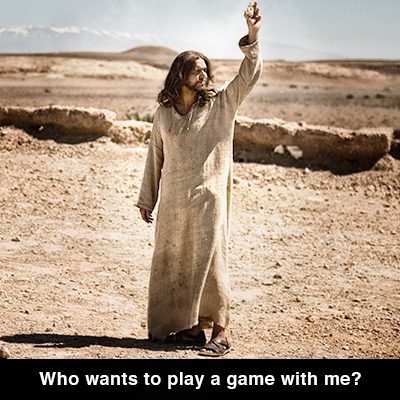Continuing my interview with Richard Foster…with his new book hitting the shelves, Sanctuary for the Soul:
Can we continue the contemplative spiritual disciplines in the modern world? Or does meditation have no place in a technological world?
Those who really give themselves to the technology are the ones to discover those little nudges toward Christ within them. But at the very same time, we must be wary of the addictive character of technology and its ability to scatter us so that we become fractured. The blogosphere and social networks can become so addictive. I think the writings of Jacques Ellul are most helpful when it comes to marking the dangers of technologies.
So we learn ways of making do. It’s not hard. Just fast from email for a week — and let the people who are trying to reach you go nuts. It will be good for them. You can put a little note that you won’t answer for a week because you’re fasting from it. That might be helpful. [Laughs.] Let them work with that for a little while.
But on the positive side of it: obviously, we’re all aware of social media and how there are positives and negatives. There are ways it helps people to build bridges across many thousands of miles, and ways in which it enables us to be aware of one another and help one another. And that kind of instant making-people-aware of situations and needs is good. Why not? People can become great friends over the internet.
But it mustn’t just stop with that. You actually have to meet a human being — touch them, see them, look into their eyes. You’re not going to get away from that. You mustn’t. But social media can help make that happen too.
Our oldest son and his family are on their way to Germany for several years. Today, we can be in touch in ways that we never could have before technology. We can Skype now. You can type out my words as we speak. I’m not on Facebook — I just made a choice not to join — but our children and grandchildren stay in touch through Facebook.
Perhaps you can use your electronic calendar or your cell phone to arrange five-minute appointments with God throughout the day. It beeps a little beep, and you get up and you take a five-minute prayer walk. It’s not hard to do. It’s not hard to do. People say solitude is so difficult to find today. It’s not. I for example don’t listen to the radio. I can choose not to listen to the radio. It’s the medium that is the most pervasive, but you can say no to it. You can.
Now, Car Talk, Click and Clack, God will listen to them. [Laughs]
You say it’s not hard — and yet people do find it difficult. Why would people find it hard to enter into contemplative prayer in the midst of the busyness of modern life?
It’s difficult in the sense that we have to make ten thousand choices as we move along, a few hundred each day, probably. Do we say yes to the Good and the True and Beautiful? Do we say yes to what is life-giving and no to what is death-giving? There will always be those decisions.
Consider that passage from Paul, “I beseech you, brethren, by the mercies of God, that you submit your body as a living sacrifice.” But the problem with living sacrifices is that they’re always trying to crawl off the altar. That’s why they take a lifetime to be offered, and they have to be offered again and again. C.S. Lewis wrote that we make these decisions constantly, either moving us toward life or moving us toward death. And a lot of time we make conflicting decisions.
That’s until our lives become unified. It’s that old process of purgation, illumination, unity, ascent. When we come to that place, that place of unio — I don’t know that I know too much about it. But I do know some people who have, I would say, entered into that union. The ease of their lives is wonderful to watch. Their decisions don’t have that same struggle anymore. The hard thing for them would be to do the wrong thing. They have such ingrained habits of righteousness, peace and joy in the Holy Spirit, that doing right is the easy thing. A holy habit – theologia habitus – theology-producing habit, is a wonderful thing. Teresa of Avila’s Interior Castle is maybe one of the finest books on Christian prayer ever written. When she leads up the mansions into the rooms seven, eight and nine, you realize she’s talking about something so unifying that life becomes easy. It’s why the moral philosophers would say that virtue is easy, because the ingrained habits of life have worked their way deep into your soul.
But it is hard, as you’re trying to come into it. And the big problem for us westerners is that once somebody gets a hold of wanting to know God. They try to grasp it and manipulate and master it [grimaces and flexes].
When you study a subject, you try to master it. But you can’t master life with God. You cannot master something in which the very point is to be mastered. Instead, you must learn to let go, to surrender, to walk with God. I used to struggle mightily, and I tried so hard to be the heroic Christian. I could give you a guided tour on how not to walk with God. Then when you take a step, you learn some things, you take another step, you trust, and when God arrives on the scene, it’s easy. It’s joy.
Thomas Kelly addresses this in his writing on devotion. He tried so hard to do it himself — and he couldn’t. Then he had great failure in his life when he was trying to get a second PhD from Harvard. He failed his orals, and that led him to a whole other dimension in his life. I’ve read his writings before that experience and after — and they’re totally different. He was so different afterwards.











